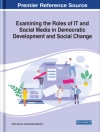Throughout the world, vulnerable people are being deceived into entering abusive journeys. Whether in the organ trade, exploitative labour businesses or forced criminality, their lives will never be the same.
This book traces the journey of victims/survivors of modern slavery and human trafficking into and within the UK, from recruitment to representation to (re)integration. Using global comparative case studies, it discusses recruitment tactics and demand, prevention in supply chains, issues with effective legal protection and care services and vulnerability to re-trafficking. It also examines the ideological misrepresentation of vulnerable migrants and victims/survivors in media, the film industry, legislation and more.
Rooted in diverse practitioner experience, disciplines and empirical research, this book bridges the experience-research-practice-policy gap by bringing to the fore survivors’ voices. In doing so, it offers crucial suggestions for better public awareness, policies and practices that will impact interventions in the UK and beyond.
Inhoudsopgave
Foreword by Patricia Hynes
Introduction: Victim journeys, survivors’ voice – Runa Lazzarino, J. Julia, Emily, and Carole Murphy
Part I: Recruiting: business and tools
1. Criminal pyramid scheme: organised crime recruitment strategies – Sasha Jesperson and Rune Henriksen
2. Organ trafficking: a neglected aspect of modern slavery – Trevor Stammers
3. Online child sexual exploitation in the Philippines: addressing demand – Imogen Fell and Sasha Jesperson
4. The role of business in the exploitation and rehabilitation of victims of modern slavery – Colleen Theron
Part II: Being a victim: discourses and representations
5. Trafficking on film: a critical survey – Jon Hackett
6. Discursive representations of the ‘invisible migrants’ on British social media – Thi-Diem-Tu Tran and Karen Sanders
7. Racialising and criminalising vulnerable migrants: the case of human trafficking and modern slavery – Neena Samota and Debbie Ariyo
8. Victims perpetrating a crime: a critique of responses to criminal exploitation and modern slavery in the UK – Craig H. Barlow
Part III: Caring: practices and resilience
9. Subject-making in ambiguous systems: trafficking aftercare in the UK and beyond – Runa Lazzarino and Anne-Marie Greenslade
10. Sexual exploitation: framing women’s needs and experiences – Kathryn Hodges, Anta Brachou and Sarah Burch
11. Survivor support: how a values-based service can enhance access to psychological capital – Carole Murphy and Karen Anstiss
12. Imagining otherwise: art and movement as tools for recovery – Anna Westin
13. Monitoring and evaluating anti-trafficking measures – Ruth Van Dyke and Mike Dottridge
Conclusion: Interrupting the journey – Carole Murphy and Runa Lazzarino
Over de auteur
Runa Lazzarino is Postdoctoral Researcher in the Research Centre for Transcultural Studies in Health at Middlesex University, London.












